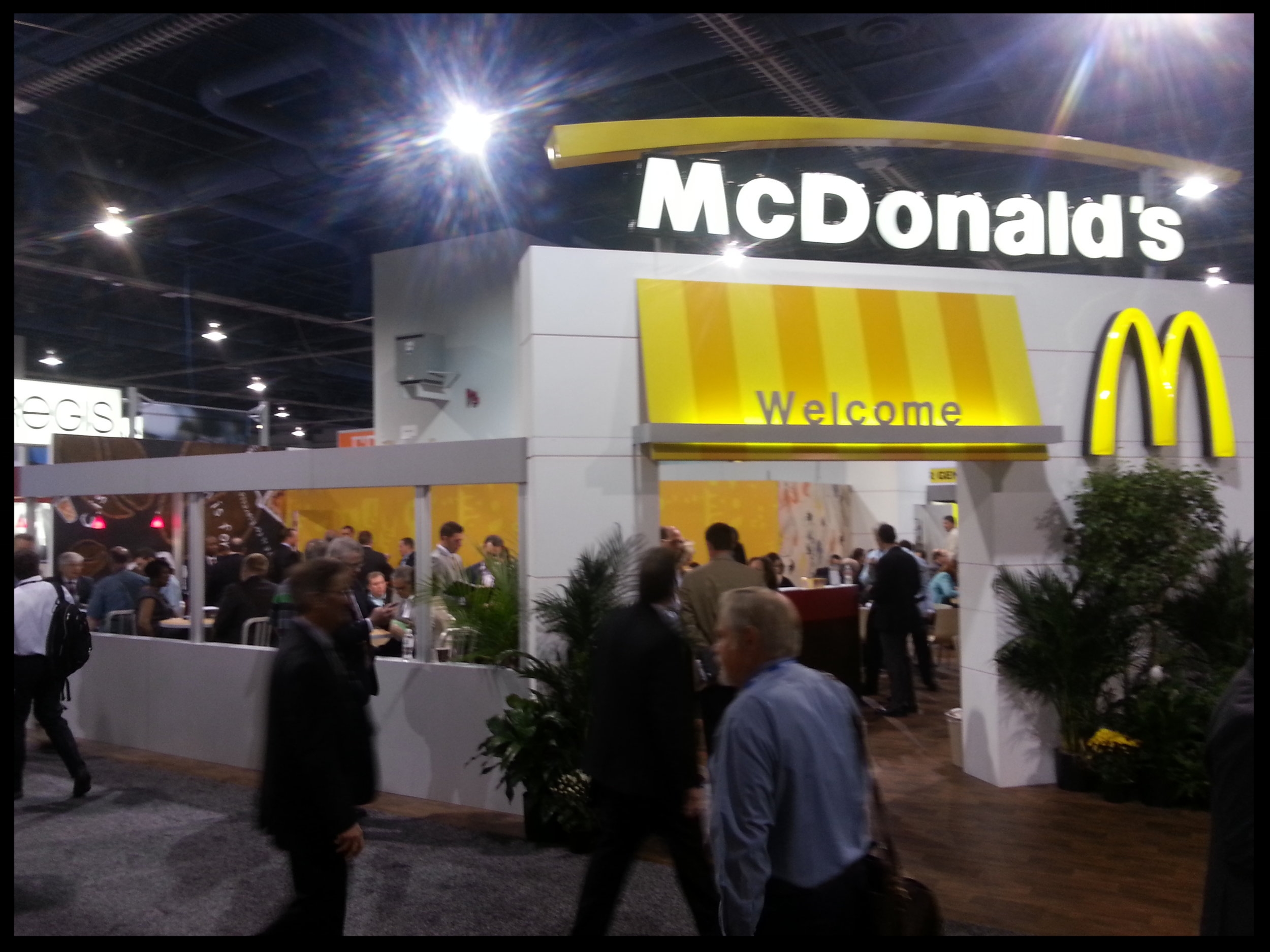Do You Know Where Your Starbucks Comes From?
/This post may contain affiliate links. Learn more by reading my disclosure.
When a retailer moves into a market or neighborhood, most people tend to get excited. At times, this excitement can be good. When Trader Joe’s first moved into our market, the city seemed to lose its collective mind. Everywhere people went, there was talk about Trader Joe’s and the inevitable question, “Have you been?”
The excitement of new retailers can also be bad. When an undesirable tenant moves into a neighborhood, a feeling of NIMBY (Not In My Back Yard) strikes. A few years back, the state of Washington legalized marijuana. Retail cannabis stores opened everywhere they could get approved and licensed. The outcry from neighbors was deafening. Some jurisdictions put a moratorium on the sale of cannabis while others banned it entirely in their towns. Last year, the retail sales of marijuana exceeded $696Million in Washington. The state is now collecting $27Million a month in taxes. A MONTH! Obviously, there’s less backlash now
When a retailer closes, there can even be some hysteria. When our downtown Macy’s announced its closing, news coverage and speculation ran wild. There was even some panic that it could affect the larger downtown retail community. “What about the lost jobs?” was asked daily by folks whose lives weren’t affected by the store’s shuttering.
The reality was the store had become tired and sales didn’t support keeping it open. After Macy’s closed, the building quickly sold and is now being redeveloped. New ground floor retail will be added and the upper floors will be converted from unused space to apartments. It ended up being a big win for the community. For a while, though, the general populace wound itself up over the loss of a major retailer.
Excitement, whether good or bad, rarely occurs with office tenants. Occasionally, there will be a press release announcing a new firm moving in, but, meh, who cares really? It’s not like we eat, shop, or find our entertainment there, so really, “How does this affect me?”
This goes double for industrial tenants. We get even less excited if a manufacturer moves into an industrial park. Another press release and another shrug of the shoulders.
I gave a presentation a few years back at the Northwest Real Estate Market Forum. The topic was the Retail Market in our county. Every year, I believe that topic alone is the highlight of the forum. That belief is partly because I focus on the retail sector as a commercial broker and investor. However, my core belief is based on the idea: “Retail is sexy.”
What About The Starbucks You Promised Me?
Oh, yeah, you came wanting to know about Starbucks, didn’t you? Who wouldn’t? America loves Starbucks. Unless you’re from the east coast in which case, should I have highlighted Dunkin Donuts? I love their coffee, too. Whenever I travel back east, I always stop in at Dunkin and get a cup of coffee and an old-fashioned.
Two brands, easily recognizable and enjoyed by most of America, and their logos are probably visible right now in your imagination.
Do you know how they get to your city so you can enjoy them without a second thought except maybe how much they’re impacting your daily budget?
I’m glad you asked.
First, each retailer has its own real estate department. A major responsibility of that team is to find new locations, either for expansion or relocation of non-performing sites.
Second, commercial real estate brokers represent shopping centers and get paid a leasing commission when a deal is signed. Therefore, they spend a good portion of their day hunting down the “right” tenant for the “right” location. They try to put two parties together to form the perfect relationship. They call on retailers like Starbucks and pitch them sites they represent.
Third, developers are trying to entice retailers to their properties. Sometimes, they do this on their own, other times they will do it with the aid of a real estate broker or a team of brokers.
Deals happen throughout the year, often on the phone, email, or even occasionally getting together for a face-to-face meeting. Sometimes, multiple deals happen in one place.
Where the Deal Makers Go
There are meetings that occur every year where all parties (retailers, brokers and developers) get together in one room - one VERY large room. These meetings are under the umbrella of the International Council of Shopping Centers (ICSC) and the largest conference takes place at the Las Vegas Convention Center every May. In 2016, there were roughly 36,000 attendees at the conference, the highest number since the recession.
There are smaller versions of this conference held throughout the year, moving from a national focus to a regional conference down to local sessions.
The Bass Pro Shops booth at the 2014 ICSC Las Vegas convention.
In Vegas, however, it’s a full-tilt affair for three days. There are massive booths for some of the retailers and developers. The Bass Pro Shops display is amazing in its size and design. Mall developer General Growth Properties (GGP) has a walled fortress so dealmakers can get in, but eavesdroppers are thwarted on finding out what retailers they’re courting.
Food retailers give away samples to encourage visitors and boost their brand image. Jimmy Johns and Jersey Mike’s give away mini-subs. McDonalds gives away coffee. Auntie Anne’s promotes their pretzels (the line for these is amazing). Moe’s Southwest provides chips and salsa. The list goes on. These retailers are a welcome sight when you’re on your feet from 8–5 hustling from one meeting to the next.
The McDonald's booth at the 2014 ICSC Las Vegas convention
Meetings get scheduled as early as two months in advance. These are often stacked upon one another and can be as short as 15 minutes a pop. There is no time for niceties. Get in, make your pitch, and get out.
The best meetings are the those that have been scheduled because a deal is in the works and it’s being pushed further down the field. The toughest ones are the first impression meetings. They do work, but the chances are slim for success. Everyone is competing for attention and even if the presenter stands out, the property may fall flat and the pitch is sunk.
The Panda Express booth at the 2014 ICSC Las Vegas convention
Trying to get an impromptu meeting is always a wild card. Just walk up to a booth, introduce yourself for the first time and ask for a meeting. Occasionally, it happens, but often it doesn’t. Persistence is the name of that game.
The most fun meetings are often found in the walk-ways, though. That’s when two people can share their attention for ten minutes or longer. Praying to one’s cell phone while walking is foolish as missed opportunities will quickly pass by.
At the end of the conference, no one escapes without sore legs and feet. I’m always amazed at the women who walk the entire conference in high heels. They are either truly impressive or insane.
When The Conference Ends
When returning from the show, the deal making process continues. In fact, it's a process that never really stops. As soon as a deal is signed, a momentary sense of accomplishment may occur but then it’s back to trying to find the next tenant. There is always space to fill or a tenant to relocate while developers are always looking to build a new project or rehab/replace an existing one.
Retail real estate is an exciting business to be in and around.
So, the next time you see a Starbucks opening on your route to work, or any number of retailers moving in and around your market, think about the time and effort that went into just getting that first shovel into the dirt to start construction.
You may appreciate your visit a bit more.
Have you been to a trade show before like the ICSC Vegas ReCon?
What were your takeaways?
Did it help you appreciate the industry more or less?









